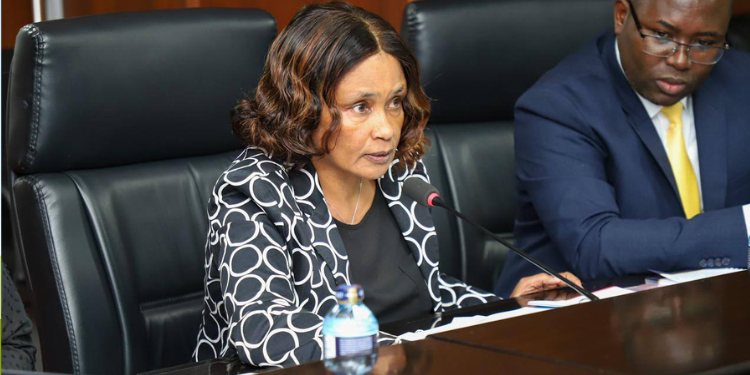News
Principals and Deputies in Secondary Schools Must Now Hold Master’s Degrees, TSC Announces

The Teachers Service Commission has introduced stringent new academic requirements for senior leadership positions in secondary schools, marking a significant shift in the qualifications needed to helm Kenya’s post-primary institutions.
Under the revised guidelines presented to the Senate Education Committee on September 12, principals of secondary schools must now hold a master’s degree in a relevant field, while their deputy counterparts are similarly bound by this elevated academic threshold.
The new framework represents a departure from previous requirements where a master’s degree, though advantageous, was not mandatory for these positions.
The commission’s document outlines comprehensive criteria for appointment, stipulating that prospective principals must possess a bachelor’s degree in education or equivalent qualification, demonstrate classroom competence, and have served as deputy head or in an equivalent position for at least three years.
Additionally, candidates must complete relevant Teacher Professional Development modules and meet Chapter Six constitutional requirements regarding integrity and leadership.
For deputy principals, the requirements mirror those of their senior counterparts, though they must have served as senior masters for a minimum of three years before consideration.
The policy extends beyond secondary schools, with primary school head teachers now required to hold bachelor’s degrees in education, while maintaining their Primary Teacher Education certificates.
The commission has also reinforced geographical deployment restrictions, ensuring that institutional heads do not serve in their home counties despite President William Ruto’s earlier directive to abolish the delocalisation policy.
School administrators are further limited to nine continuous years at any single station, with tertiary institution deans and registrars restricted to six-year tenures.
However, the new requirements have sparked considerable opposition from teacher unions. The Kenya Union of Post-Primary Education Teachers and the Kenya National Union of Teachers have condemned the changes as abrupt and discriminatory, arguing that they unfairly disadvantage experienced educators who lack master’s degrees.
Moses Nthurima, Kuppet’s deputy secretary-general, criticised the timing of the directive, noting that the recent Collective Bargaining Agreement deliberately excluded master’s degrees as promotion requirements.
He argued that the commission should have first supported teachers in pursuing advanced qualifications rather than imposing sudden mandates.
The unions have also challenged the continued enforcement of delocalisation policies, particularly when combined with promotions that separate teachers from their families or remove them from hardship areas where they receive additional allowances.
These changes reflect the commission’s broader alignment with the Competency Based Education framework, emphasizing enhanced academic credentials and professional development in educational leadership.
However, the implementation faces significant resistance from educators who view the requirements as punitive rather than progressive, setting the stage for potential industrial relations challenges as the policy takes effect.
Kenya Insights allows guest blogging, if you want to be published on Kenya’s most authoritative and accurate blog, have an expose, news TIPS, story angles, human interest stories, drop us an email on [email protected] or via Telegram
-

 Investigations2 weeks ago
Investigations2 weeks agoInside Nairobi Firm Used To Launder Millions From Minnesota Sh39 Billion Fraud
-

 News2 weeks ago
News2 weeks agoUnfit for Office: The Damning Case Against NCA Boss Maurice Akech as Bodies Pile Up
-

 News2 weeks ago
News2 weeks agoTax Payers Could Lose Millions in KWS Sh710 Insurance Tender Scam As Rot in The Agency Gets Exposed Further
-

 News2 weeks ago
News2 weeks agoDeath Traps: Nairobi Sitting on a Time Bomb as 85 Per Cent of Buildings Risk Collapse
-

 News2 weeks ago
News2 weeks agoRaila Bodyguard Maurice Ogeta Appointed As Mombasa Security County Adviser
-

 Investigations6 days ago
Investigations6 days agoKERRA Homa Bay Region Manager Calvince Thomas Accused of Swindling Businessman Ksh 2 Million in Phantom Tender Deal
-

 News2 weeks ago
News2 weeks agoMiguna Announces 2027 Presidential Bid
-

 Business6 days ago
Business6 days agoTreasury’s Sh40 Billion Safaricom Gamble Could Cost Kenya Trillions, Auditor Warns


















